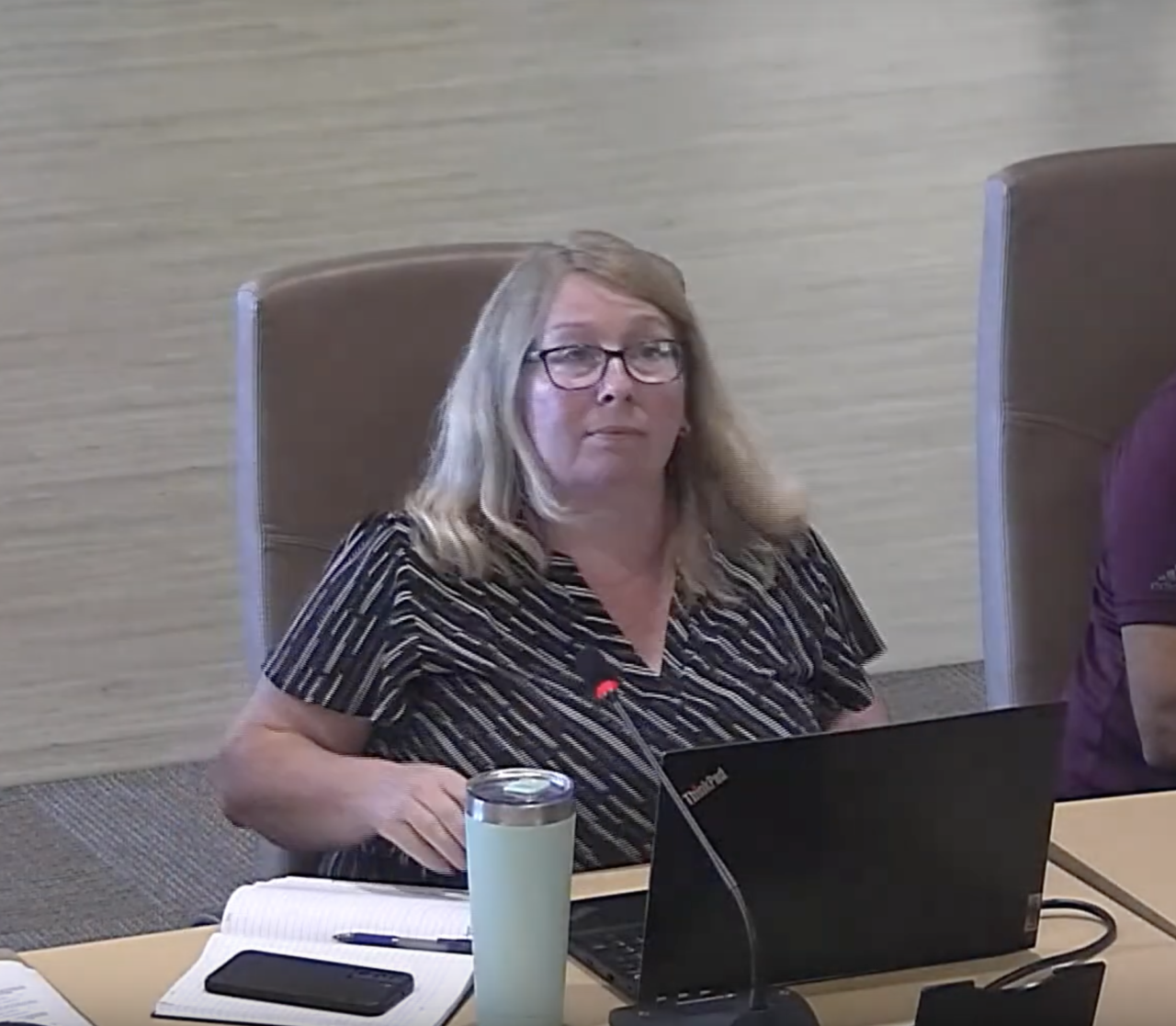
Drive-thrus may have at one time been a controversial item on Sackville town council’s agenda, but after a public hearing by Tantramar council on Tuesday afternoon, it’s hard to argue that residents feel strongly one way or another on the issue.
No members of the public showed up for a public hearing on whether or not to lift the 22-year-old ban on new drive-thrus in the town’s highway commercial zones, and no comments were submitted online or by mail through Plan 360. Even the proponent of the bylaw amendment, Rashaid Tufail, owner of the former Pizza Delight building on Mallard Drive, didn’t make an appearance.
The final question on the proposed change will be decided by council in a three separate votes, likely happening over the next two regular council meetings in August and September.
The case for drive-thrus
There’s no indication yet of which way councillors are leaning, but planner Lori Bickford’s report outlines the case for supporting the bylaw change.
Bickford told council Tuesday that the amendments she put forward could address one of the main issues cited in 2001 when drive thrus were originally banned, which was concerns over traffic congestion and confusion at exit 504.
The amendments would allow for drive-thrus as a permitted use in highway commercial zones, but would include design standards and also a requirement for a traffic impact study to be conducted, paid for by the developer, and submitted to Plan 360.
The proposed bylaw amendment outlines minimum queuing lanes, requiring room for 11 inbound vehicles, and 2 outbound vehicles. It also requires lanes to be physically separated, have clear visibility at exits, and include marked pedestrian crossings where necessary. In cases where less than 11 queueing spaces are provided, or where the number of vehicles is expected to exceed 40 cars per hour, the amendment calls for an additional queuing/traffic study.
Traffic impact study
On top of that, the amendment will require traffic impact studies for a number of types of development in highway commercial zones, regardless of whether they include drive-thrus. Fast food restaurants or coffee shops, destination retail stores, and gas stations or convenience store of certain sizes are required to have a study completed, along with any other new development that would generate more than 100 new car trips during peak traffic hours.
The study would be paid for by the developer and conducted by a qualified professional engineer, and the developer would be required to implement the engineer’s recommendations, without those recommendations having to go through council.
Council has commissioned traffic engineering reports before. Back in April 2021, a traffic engineering report looked into the possibility of reducing speed limits on Pond Shore Road. The engineer in that case actually concluded that the speed limit should go up on part of the road to match the design of the road. Council rejected that recommendation.
False choice argument on emissions
An additional reason behind the drive-thru ban, according to Bickford, was the extra emissions and air pollution caused by increased idling at drive-thrus. Natural Resources Canada says that if Canadian drivers could each avoid just three minutes of idling every day for year, they would collective keep 1.4 million tonnes of CO2 emissions out of the atmosphere, and save the equivalent of 630 million litres of fuel.
On Tuesday, Bickford put forth a false-dilemma argument, saying that because the town had measures to prevent idling in their own fleets, that would eliminate the concern over allowing more venues for more car drivers to idle their vehicles.
“The town does feel that they have their most impact on reducing emissions through the controlling of their own fleet, and their own operations,” said Bickford. The planner listed a number of Tantramar’s emissions control policies, such as the town’s policy to reduce idling by town staff, efforts to replace vehicles with more efficient versions, the choice of LED lighting on streets, LEED certified buildings, and soon-to-be-installed electric vehicle charging stations. The implication of the argument is that the town would need to make a choice between its current emissions reductions policies, and a ban on drive-thrus, which is of course not the case.
In response to a question from journalist Bruce Wark, Bickford explained that at one point the town of Sackville had explored the possibility of bringing in anti-idling policies throughout town. “However, the provincial legislation did not allow for that to happen,” said Bickford.
In his response to Wark, Mayor Andrew Black confirmed that the only tool for limiting idling in town, outside of the town-owned fleet, was to limit the proliferation of drive-thrus. “Other than limiting drive-thrus from town,” Black told Wark, “we can’t have any anti-idling bylaws.”
The new bylaw is expected back before council at its August 8 regular meeting.
